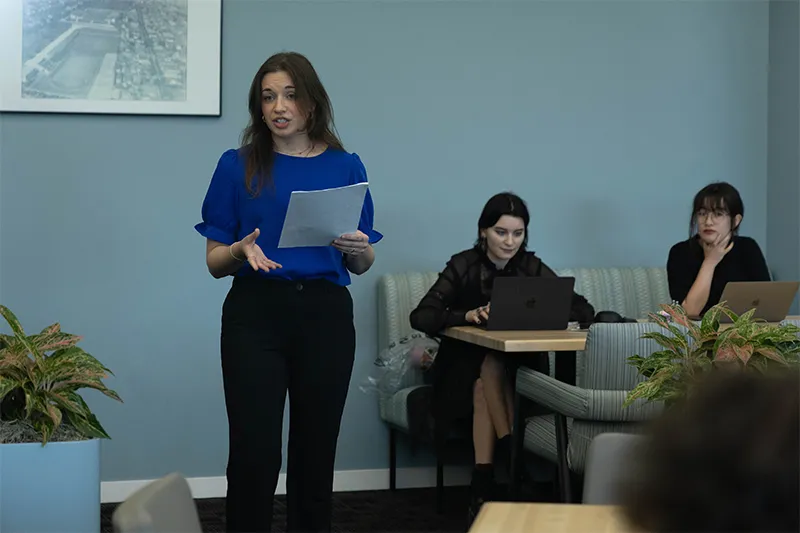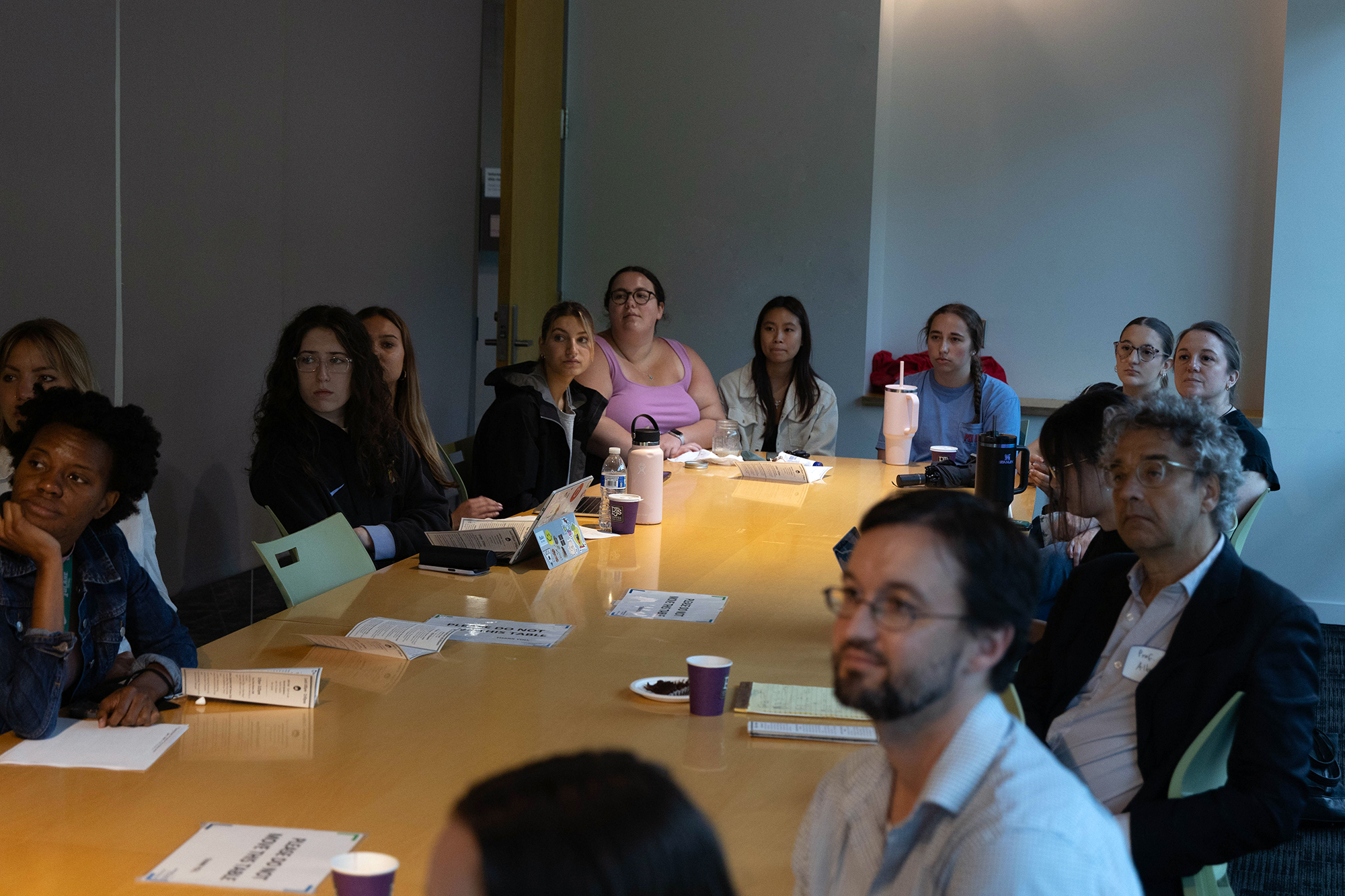
What impact does the consumption of true crime have on our understanding of reality? How are male pickup artists linked to internet-trolling incels? In what ways does Kate Chopin use regionalism in her writing? These are just some of the research questions presented by panelists at Tulane’s 3rd annual English Undergraduate Research Conference, an event that celebrated the depth of intellectual curiosity and opportunity for unexpected ideas in the study of literature.
I had the privilege of acting as a moderator and Keynote Graduate Speaker at this year’s conference, along with some other English graduate students. Presenters represented different years and majors, all linked together by outstanding research papers and creative writing submitted for their English classes. The event is designed to give students of all majors the full experience, complete with lively question-and-answer sessions following their presentations.
While moderating my panel, I had the opportunity to hear from Caroline S. and Petra R., two STEM students who presented completely different pieces linked by their shared contemplation of the nature of reality and truth. Caroline’s piece, a bittersweet exploration of her New Orleanian roots, grounded itself in the universally human desire to understand our families and our pasts. Petra’s research, on the other hand, analyzed how the consumption of true crime as entertainment can skew our perceptions of reality while moving us farther away from our humanity. After presenting their writing, the audience participated in an engaging session of questions and synthesis, ultimately contemplating how our personal mythologies and biases undergird our perception of reality.
Looking back on their joint panel, Caroline stated that “Being able to do this showed me the ability for personal experiences to transcend the personal and have other people connect with that. Then, during our discussion, I had thought, how were we going to connect these things? And somehow we did!” Meanwhile, Petra mused on presenting in general, noting, “I think a lot of times it can be uncomfortable finding the right words that convey what you mean [when put on the spot], but it deepens your understanding and perception of your own writing without even realizing it.”

For my Keynote Address, I shared my Master’s thesis exploring linked themes in Gothic literature and Gothic rock. My fellow Keynotes, Leah-Tim Davant and Alex Gassel, presented a Master’s thesis about regionalism within Kate Chopin’s literature on New Orleans and a Capstone project on how Virginia Woolf’s writing parallels later absurdist ideas in Camus’ The Myth of Sisyphus, respectively. Presenting on this range of topics was a chance to show how pursuing graduate studies in English at Tulane empowers students to explore the subjects and ideas that most engage them within the broader curriculum.
What strikes me as the most important and dynamic part of studying English is how each thing we study can be linked to another. Although we tend to view English as solely the study of literature, the field is far more interdisciplinary than just that — consisting of Philosophy, Art, History, and even sometimes delving into the sciences. Undergraduates presented on topics such as the Oura Ring, cyborgs in the modern age, and chivalry in the South. And while the topics themselves seemed worlds apart, each presentation shared a common thread: the desire to bridge personal insight with broader cultural understanding.

In the end, what the English Undergraduate Research Conference really shows is how unexpected ideas can come together in powerful ways. Whether a personal narrative centered on our history or research on the ramifications of true crime, each presentation revealed how English isn’t just about literature, but the emotions and ideas that make us human. Presenters proved that curiosity is what unites us all, and it thrives when we push boundaries and share these conversations across disciplines and generations.

